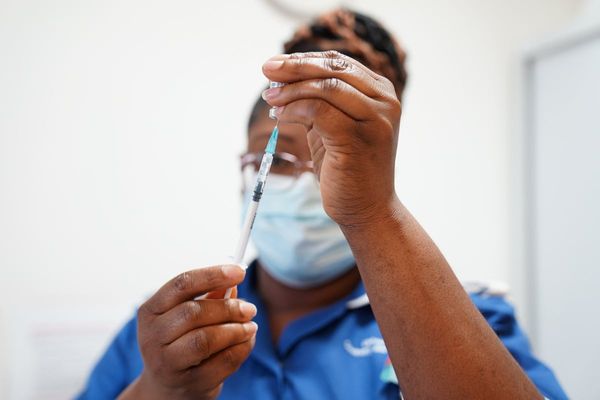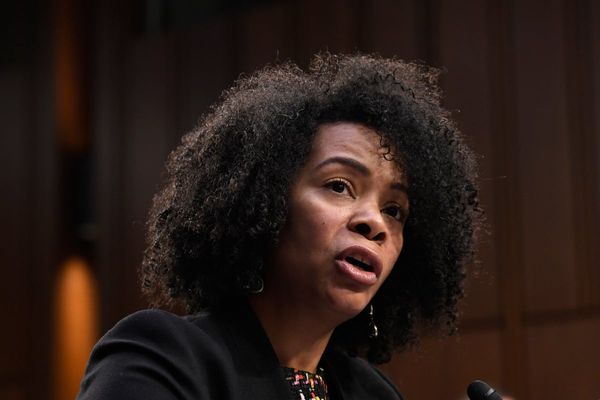
Taiwan President Tsai Ing-wen (蔡英文) is well liked in Washington for her reluctance to pick fights with China. But she is not popular at home. Recent polls have put her approval rating below 20 percent. Her bid for re-election next year, already iffy, became even more complicated when her former premier, WillIam Lai (賴清德), declared his intention to challenge Tsai in the Democratic Progressive Party (DPP) presidential nomination. It is the first time an incumbent president in Taiwan has been subjected to a primary challenge. The contest may anger China, since Lai is a more vocal supporter than Tsai of the idea that Taiwan should formally declare itself to be a distinct country from China – a move Beijing says would be grounds for war.
Taiwan’s 2020 general election is set to take place in January of next year, the result of which will determine the President and the composition of the Legislative Yuan in the next four years at a time when China continues to increase political and military pressure against the island nation. Lai’s March 18 bombshell decision to join the primary was described by DPP observers as an “ambush.” Party-government echelons were kept in the dark. Members of Lai’s New Tide faction comrades tried to dissuade him but to no avail. Only a minority of pro-independence elders knew of Lai’s decision in advance.

Lai’s manifesto stated that “Taiwan does not want to be another Hong Kong or Tibet,” hoisting banners for the Taiwan independence double march. Tsai, surprisingly, could not respond immediately. Lai challenged Tsai internally, while externally he zeroed in on Kaohsiung Mayor Han Kuo-yu (韓國瑜) as his principal opponent, saying that this was not only a struggle for the path of the DPP but also a battle over the future development of Taiwan and the struggle over its path of national governance. To put it simply, Lai did not agree with Tsai's conservative approach to cross-Strait issues. On the matter of national governance, he, however, believed that the Tsai government’s impotence could not win people’s hearts, believing that he should replace her.
In order to stump for Kuomintang (KMT) candidates in the mid-March legislative by-elections, Han dashed south to north; in the end, the KMT failed to conquer two dyed-in-the-wool Green districts in New Taipei and Tainan. However, the KMT did not really lose; it performed reasonably well, making both contests uncomfortably close for the DPP.
More notably, Han exhibited a super-popularity that transcended Blue and Green which no one inside the KMT could match. After Han was elected mayor of Kaohsiung, he put campaign planks in action “understanding the sufferings of the populace and the ideals of grassroots economics,” which has seemingly touched the sore spot of the public. Supporting Han has thus become an all-people movement. Behind it was of course, the despair resulting from a simmering resentment towards politicians from both the pan-Blue and pan-Green camps.
Han has become one of the most controversial politicians to hit the scene of modern Taiwanese politics. His recent trip to China and his policy rhetoric has led to critics deeming him clueless, deceptive and even a threat to democracy. But Han has become addictively popular among voters, and polls show him as a heavy favorite in the 2020 presidential election should he decide to run.

For a long time, Tsai's government has been criticized for responding to Taiwan’s problems by blaming China, while the KMT has leaned too heavily on Beijing, forgetting entirely that only through redoubling Taiwan’s efforts and self-reliance can it remain unperturbed in adversities. For several decades, the Blue and Green camps only knew spinning in place focused entirely on the relative non-issue of unification vs. independence, while issues from government finance and economics, agriculture, medical care, environmental protection and energy, among others, have repeatedly been hijacked or twisted by interest groups.
Too many entangled problems are awaiting the next president to turn the tide. 2020 will be a crucial moment for Taiwan. The new government must, in the shortest possible time, restart cross-Strait consultations, smoothing out the tensions created by People’s Liberation Army (PLA) planes circling Taiwan. Only by doing so can Taiwan create favorable conditions for foreign investment and the homecoming of Taiwanese businesses in China.
The next president must stop Taiwan’s bleeding of an ever-increasing isolated international situation and start re-nurturing its relations, returning to the functional organizations of the United Nations. Taiwan must especially accede to the Comprehensive and Progressive Agreement for Trans-Pacific Partnership (CPTPP) and the Regional Comprehensive Economic Partnership Agreement (RCEP), not allowing Taiwan to become an abandoned chess piece.
More importantly, the new government must shake off the fake political mingle, the bad habit of seeking official positions and personal benefits, that has permeated both the Blue and Green camps for a long period of time. Just as Han has said: “The parties and political figures that muddle through must step down.”
Right now, Han fans have determined that only Han can change the culture of the Blue and Green camps. KMT Chairman Wu Den-yih (吳敦義) has begun to respond positively to Han fans’ enthusiasm, believing that if Han could be elected president, then the construction of Kaohsiung and the entire country could be combined together. Conversely, under the blocking of the DPP government, how could Han fulfill his ambitions for Kaohsiung? Han’s supporters in Kaohsiung may understand the logic that “if Taiwan fares well, then Kaohsiung will fare well.”
The KMT has no reason not to nominate its strongest warrior; the legislative by-elections only underscored the KMT’s predicament that Han Kuo-yu is the best of the party. The other candidates who wish to seek the KMT’s nomination for the presidential election all lack the strength to expand the voter base, as well as the strength of a sudden explosion, to say nothing of Han’s amiability. After the trailing in the legislative by-elections, Han fans conversely became more solidified to support Han to run for president.
Only if such a KMT candidate wins the election can the party’s cross-Strait policy gain the legitimacy of public opinion. Of course, in the course of the election, Han must assure the people that “unity is not ruled out” does not equate to “unconditional unification.” (Han has repeatedly affirmed the “1992 consensus” but has rejected a “one country, two systems” framework for Taiwan.) Any unification would be the result of mutual agreement between the two sides of the strait, and still needs to be integrated into the process; such a ruling must first strengthen Taiwan, in order to allow China to offer the most favorable conditions for Taiwan’s unification.

Maintaining peace and cross-Strait balance in the Taiwan Strait remains the basic policy of the United States. Compared with the opportunism and aggressive habits of the DPP, the public backing of Han emphasizes that Han’s proposition of cross-Strait economic cooperation may actually be likely to resonate with the international community. Taiwan's development and strength needs to link the world, and at this critical point, Han will do better than the DPP and other KMT potential candidates.
Taiwan has reached an impasse, facing an arguably slow (but perhaps stable) economy, a cross-Strait deadlock, and an escalating internal confrontation between the DPP and KMT, with the DPP insistent on confronting China while the KMT banks on the possibility of a cross-Strait peace treaty. If this version of the status quo does not change, Taiwan’s difficulties will only increase over the next four years. What if the personality traits, policy propositions, and “wave” of support behind Han Kuo-yu are the most likely to create positive change?
Han has been harshly criticized for his apparent closeness to China due to his willingness to endorse “one China” under the “1992 consensus,” albeit under the KMT position of allowing for different interpretations of what “one China” means. Above all, the most important aspiration of everyday Taiwanese people is peace. Han has spoken of the risks of being too close to Beijing. If a Han administration pursues economic ties with Beijing while simultaneously rejecting “one country, two systems” and preserving Taiwan’s democracy – just as the Ma Ying-jeou administration managed to do – it could secure a better future for Taiwan than that which has been offered by the DPP… and rejected by voters in November’s nine-in-one elections.
The KMT is anxious for a win after losing both the presidency and the parliament majority in 2016, leading to the party’s willingness to consider drafting Han as its presidential candidate.
I would like to close by asking: If the DPP maintains its current strategy for another four years, will Taiwan’s future be better or worse? Which candidate is most likely to fight for the future of Taiwan’s economy? If Han wants to honor his commitment to Kaohsiung, perhaps he must prevent Tsai from being re-elected – and the best way for him to do that would be to represent the KMT as its 2020 presidential candidate.
The views expressed in this article are those of the author and do not necessarily reflect the editorial policy of The News Lens.
Read Next: OPINION: Looking Back on a Farcical Start to the Han Kuo-yu Era
Editor: Nick Aspinwall (@Nick1Aspinwall)
If you enjoyed this article and want to receive more like it in your news feed, please be sure to like our Facebook page below.







